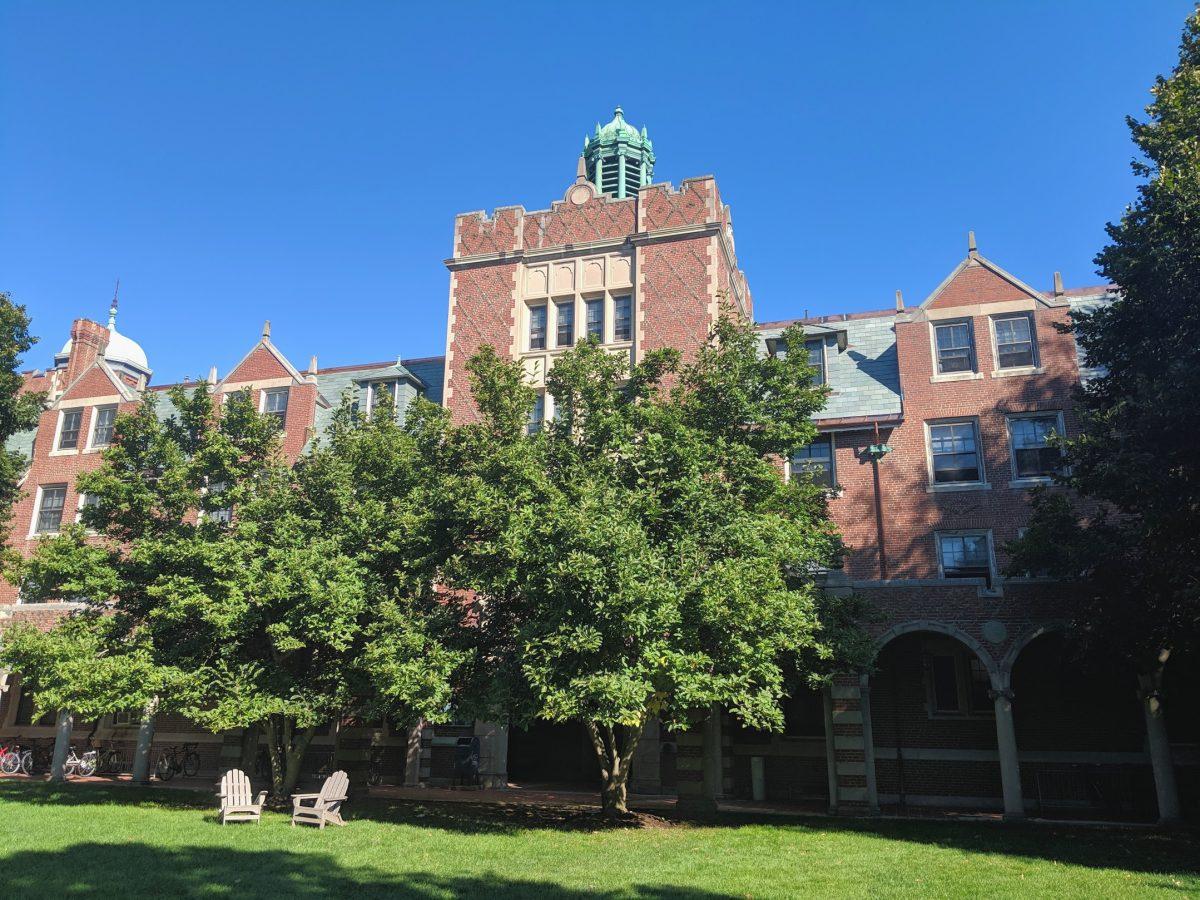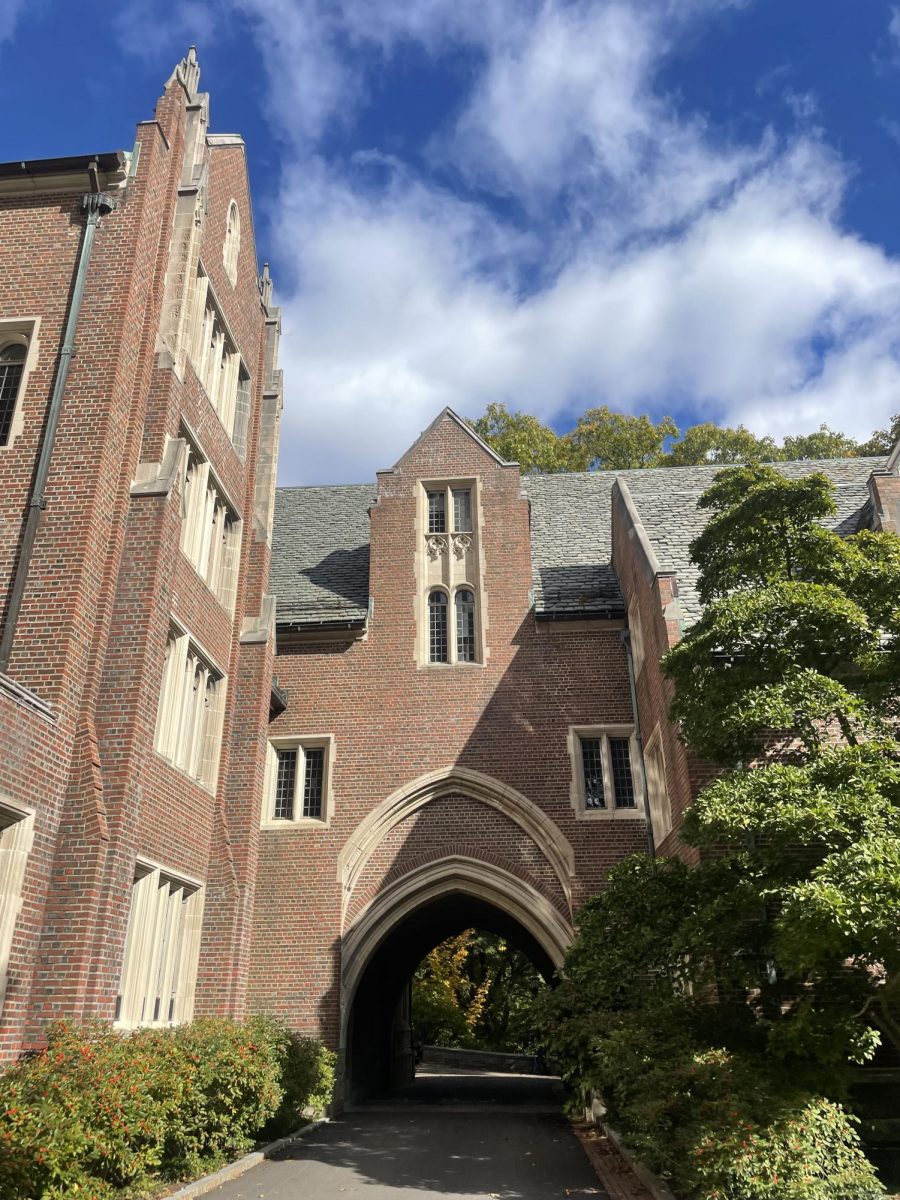Kyra Deehr-Lewis ’24 was disappointed when Freeman Hall, her first-choice dorm, ran out of rooms before she even began her housing selection. When it came time for her 11:50 a.m. time slot, she focused her search towards Beebe Hall, where she encountered the same issue. In fact, she soon found that there were no available doubles on campus that she and her intended roommate, Carolyn Prestowitz ’24, could live in — a situation completely unexpected for both, as 97% of Wellesley students live on campus, according to the US News & World Report.
Deehr-Lewis and Prestowitz were two of 50 students who were not able to register for housing on June 10, according to Director of Residential Life Helen Wang. While other second-year students were able to register for rooms, some ended up separated from their intended roommates due to a lack of available doubles.
In an interview with The News, Wang confirmed that the cause of the housing issues was not a room shortage, despite the housing portal showing no available rooms. According to Wang, the inability to house some students resulted from a lack of available, open doubles, or doubles in which neither of the beds had already been reserved.
However, while there are still beds available, selecting them would require existing roommate pairs to separate. Instead of doing so, students have been placed on a list of ‘open assignments’: those who will be assigned rooms together as they open throughout the summer due to students choosing, for various reasons, not to return to Wellesley in the fall. This is likely a result of some upperclassman students having to select doubles without a roommate due to a finite supply of singles, thereby limiting the amount of empty doubles available for rising sophomores to select. “They technically could go in and pick beds right now, but they’re not beds in spaces that work well for them,” Wang said. She added that after redesignating room sizes with an architectural firm, the College gained a net positive of 60 beds.
Following housing selection, many students impacted by the issues were frustrated with their inability to select a single or double with their desired roommate. Others were forced to split up and choose the only bed left in an already full double or triple. By the end of the day of room selection on Thursday, June 10, the housing portal showed no more available rooms, and many students believed that the root of the issue was a housing shortage.
“How do you not know how many kids you have to have beds for? Because everyone filled out that housing intent form,” Deehr-Lewis said.
Deehr-Lewis and Prestowitz waited to see whether any doubles with two spaces would open up, but eventually there were not even any doubles that had one space left. They logged onto a Zoom with Wang and a few other administrators. In response to another student on the Zoom call who was able to sign up for a room but not with their intended roommate, Wang encouraged the student to keep the room and live with the random roommates.
The affected students filled out a Google Form to confirm their “open assignment” status, meaning that they would hear back about their rooms in mid-July at the earliest, according to Wang. Deehr-Lewis and Prestowitz both stated that they would be happy with any room on campus as long as they can stay roommates — which is not guaranteed — but they are nervous about the wait because they are both fall athletes and are moving in early, on Aug. 18.
“The fact that we’re moving in before everyone else also doesn’t help the stress,” Deehr-Lewis said.
During the Zoom, Wang stressed that similar issues with housing occur every year. In fall 2019, dozens of students were displaced due to water damage in Munger Hall and technical issues with StarRez, the platform the College uses to assign housing. At the start of the semester, these students were living in the Davis Hall TV room, the College Club and other makeshift rooms. In 2019, Wang stated that the deterioration of old residence halls might cause more student displacement in the future. Despite these similar problems in the past, Deehr-Lewis felt that Wang was unprepared for the current situation, noting that Wang created the open assignment Google Form during the Zoom and repeatedly went into breakout rooms with other administrators to discuss their plan.
“It was pretty clear it needed to be prepped for in advance,” Deehr-Lewis said, adding that she felt the Zoom was unhelpful in addressing her concerns.
Wang was clear that she and her staff understand the stress felt by students who will likely not know until August where they will live for the fall semester, but believes the situation will be resolved.
“I want students to know that I know it’s stressful [and] I want them to know that I really care about them being happy,” Wang said. “This year you may get your housing assignment later than you want, but it will probably be better than you expect.”
While the students who have not yet been assigned rooms may not know their room assignment until weeks before the 2021-2022 school year begins, Wang said that waiting to assign rooms is better than assigning less desirable locations now.
“We made a decision to do open assignments because we knew it would be a better experience for the students,” she said.
Deehr-Lewis and Prestowitz joked that they would accept anything other than a room in College Club just to have a confirmed housing assignment.
“I know that I’m a sophomore and sophomores tend to get the brunt of things, but this is not really what I was looking forward to going into my sophomore year,” Prestowitz said. “My standards have dropped so low … I’m pretty frustrated with the system right now.”






